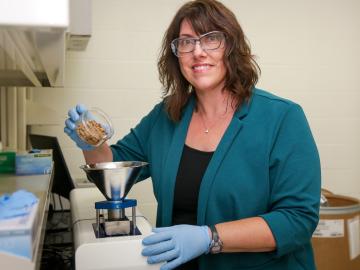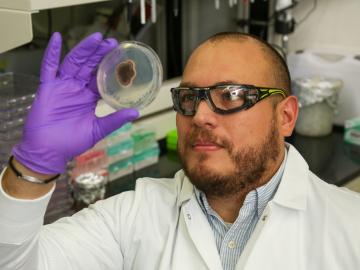Filter News
News Type
News Topics
- (-) Bioenergy (4)
- 3-D Printing/Advanced Manufacturing (5)
- Advanced Reactors (2)
- Artificial Intelligence (12)
- Biology (6)
- Biomedical (3)
- Biotechnology (2)
- Buildings (5)
- Chemical Sciences (3)
- Climate Change (4)
- Composites (1)
- Computer Science (8)
- Decarbonization (9)
- Education (1)
- Emergency (1)
- Energy Storage (2)
- Environment (7)
- Exascale Computing (4)
- Fossil Energy (2)
- Frontier (5)
- Fusion (3)
- Grid (4)
- High-Performance Computing (7)
- Isotopes (5)
- Machine Learning (4)
- Materials (6)
- Materials Science (7)
- Mathematics (1)
- Microscopy (2)
- Nanotechnology (1)
- National Security (7)
- Net Zero (3)
- Neutron Science (5)
- Nuclear Energy (4)
- Partnerships (6)
- Physics (1)
- Quantum Computing (5)
- Quantum Science (9)
- Security (1)
- Simulation (7)
- Space Exploration (3)
- Summit (4)
- Sustainable Energy (8)
- Transportation (3)
Media Contacts

Scientists at Oak Ridge National Laboratory and six other Department of Energy national laboratories have developed a United States-based perspective for achieving net-zero carbon emissions.

The U.S. Environmental Protection Agency has approved the registration and use of a renewable gasoline blendstock developed by Vertimass LLC and ORNL that can significantly reduce the emissions profile of vehicles when added to conventional fuels.

ORNL’s Erin Webb is co-leading a new Circular Bioeconomy Systems Convergent Research Initiative focused on advancing production and use of renewable carbon from Tennessee to meet societal needs.

New computational framework speeds discovery of fungal metabolites, key to plant health and used in drug therapies and for other uses.




